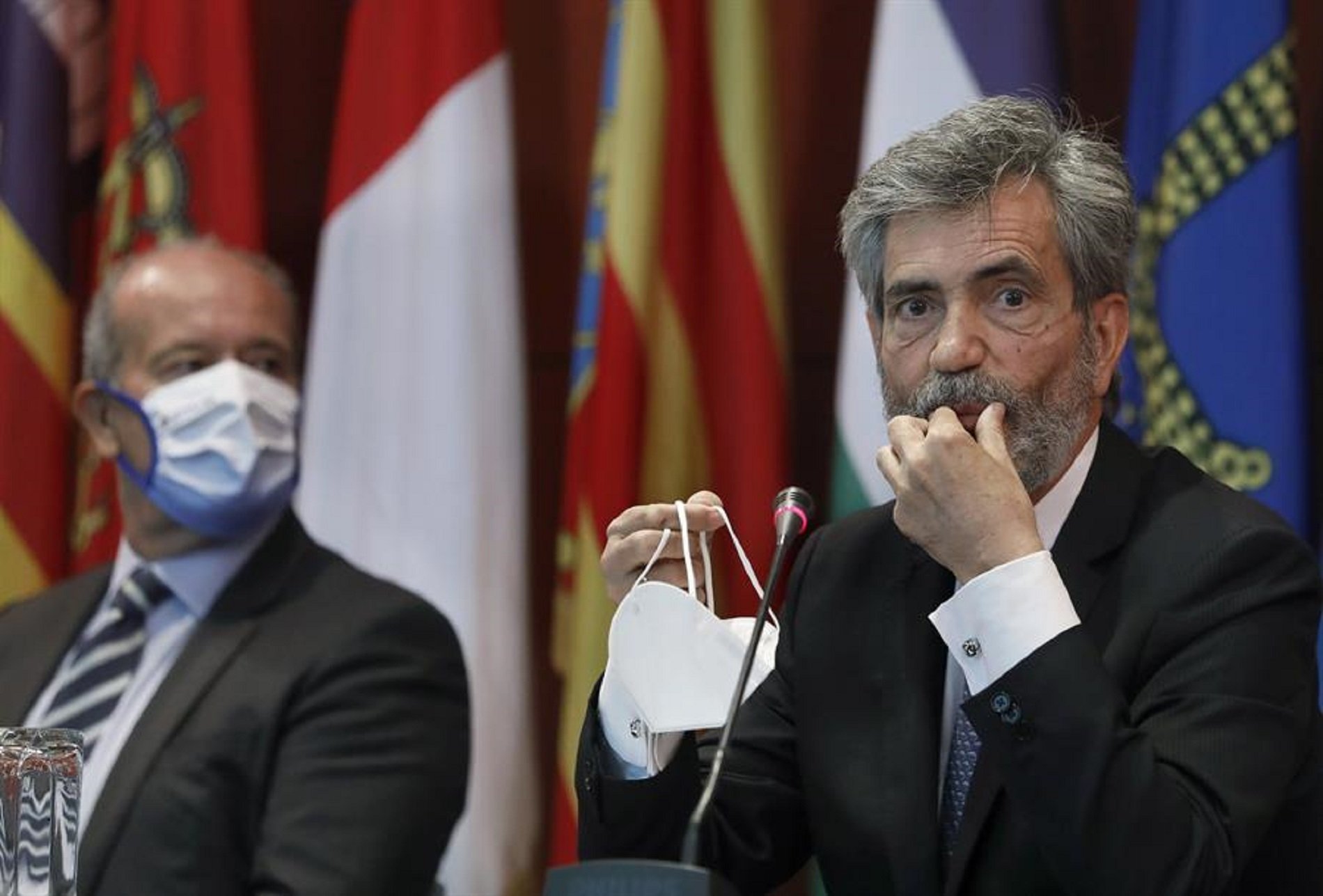An internal showdown is occurring in the highest body of the Spanish judiciary, as judges appointed by the right-wing Popular Party (PP) openly confront other judges who were nominated by the Socialists (PSOE) as well as the executive power, that is, the Spanish government. Eight of the 20 members of the General Council of the Judiciary (CGPJ) have this Monday formally requested the holding of an extraordinary session of the full council for Wednesday evening, to decide the body's response to the government's plan for its reform. The members who are calling the session consider that the government is attempting to reduce its functions, including the body's ability to make appointments to the top judicial hierarchy. They want to take the matter to Spain's Constitutional Court and for the European Commission to be informed, in the context of its annual report on the state of the rule of law in the European Union.
The proposal surpasses the minimum of five movers required to force a council session, and bears the signatures of judges Rafael Fernández Valverde, Carmen Llombart, José Antonio Ballester, Gerardo Martínez Tristán, Juan Manuel Fernández, Juan Martínez Noya, Nuria Díaz and Maria Ángeles Carmona - all appointed to the council following their proposal by the PP.
In particular, the signatories request that the meeting debate the possibility of advising the Constitutional Court of a conflict of powers, with prior notification to the Spanish Parliament, as well as a request to the ombudsman to file an appeal of unconstitutionality against the reform of the law governing the judicial structure, which was urged by the current coalition partners PSOE and Podemos.
The letter, to which Europa Press has had access, also calls for this Wednesday's council session to debate a response to the questions posed to it by the European Commission as part of the preparation for the European report on the rule of law in 2021.
PP and Vox, to the Constitutional Court
Last week, support within the judiciary's governing body for the proposal now raised was much more limited, given existing jurisprudence which was thought to make its progress difficult.
However, the matter is now already on the table in the Constitutional Court, at the initiative of opposition political parties such as far-right Vox, which appealed the constitutional status of the PSOE and Podemos text last week. In January, the PP had already submitted an objection to the court on the 'urgency' taken in the parliamentary processing of the reform.
With regard to the conflict of functions, this is a very unusual initiative which arises when a constitutional body, such as the CGPJ, considers that another of the organs of the state has assumed functions which are outside its responsibility, and in such a case it is required to previously notify the "invading body" - in this case the Congress of Deputies - within a month of becoming aware of the improper action, requesting that it be revoked.
If the body to which the request is addressed states that it is acting within its proper powers, or if within one month of receipt of the notification it has not rectified the situation in the way requested, the body that considers that its functions have been unduly invaded may take a claim to the Constitutional Court, specifying the legal precepts that it considers breached and arguing its case as it deems appropriate.
A period of one month is then given to the other party so that it can appear in the proceedings and make its own case and, finally, the court ruling resolving the dispute will determine which of the bodies holds the constitutional powers concerned and will declare null and void any decisions improperly taken in relation to these powers.
Communication to the EU
Within the CGPJ, there may more enthusiasm for a submission on the matter as part of the report to be sent to Europe, as last Thursday preparation of the possible content was already placed in the hands of council member Nuria Díaz Abad, who is one of the judges demanding Wednesday's meeting.
This content would be a communication to the European Commission in the context of the report it must prepare on the Rule of Law 2021, which could include the Spanish CGPJ's position on its reform. This text was initially scheduled to be heard in the body's standing committee and then to a plenary, although it looks like the discussion on its content will take place next Wednesday.

